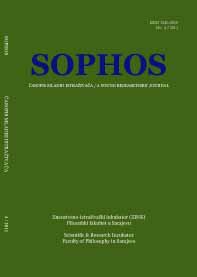TEŽNJA FILOZOFA PREMA SMRTI U PLATONOVOM FEDONU
THE PHILOSOPHER’S STRIVING TOWARDS DEATH IN PLATO’S PHAEDO
Author(s): Ljubiša PricaSubject(s): Philosophy
Published by: Filozofski fakultet u Sarajevu - Znanstveno-istraživački inkubator
Keywords: suicide; soul; body; life; death; paradox; consistency; rational; irrational; moral; non-moral; metaphor; god
Summary/Abstract: In Plato’s dialogue Phaedo, Socrates claims that any philosopher will go as soon as possible in death and that suicide is forbidden. Consideration of these two – seemingly paradoxical – assertions is the main focus of this article. The aim is to show through analysis that Murrey Miles failed to prove the possibility of inconsistency of the aforementioned Socrates’ claim, as well as to argue the thesis that Socrates removed the suspicion of inconsistency by defending the philosophical way of life as caring for the death. The reason is that, unlike the Pythagorean absolute prohibition of suicide, it seems that neither Plato nor Socrates in the dialogue is obligated to this view. At the end, under institutional pressure, Socrates technically committed suicide, in the contemporary sense, by drinking poison. Therefore, he also proved practical consistency of his teaching, according to which the philosopher metaphorically aims at death by caring for the soul during the lifetime, thus, indirectly, he separates himself from the body and the physical.
Journal: Sophos- časopis mladih istraživača
- Issue Year: 2011
- Issue No: 04
- Page Range: 49-60
- Page Count: 12
- Language: Croatian

